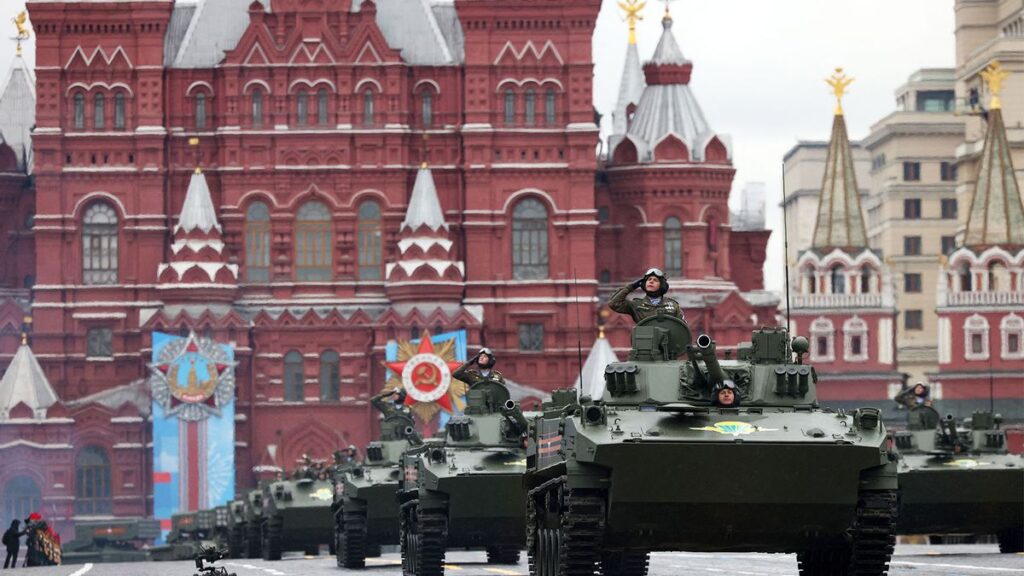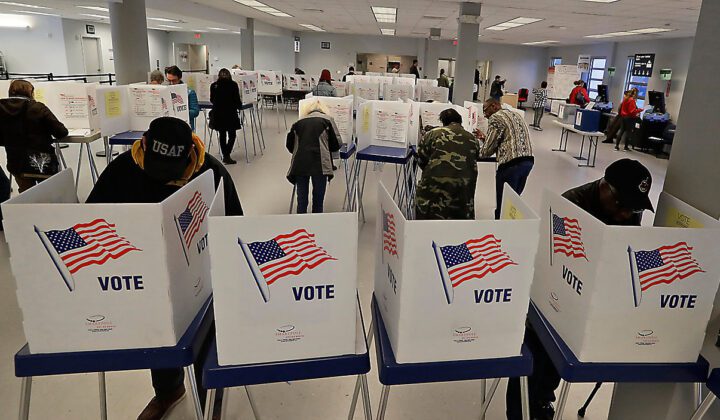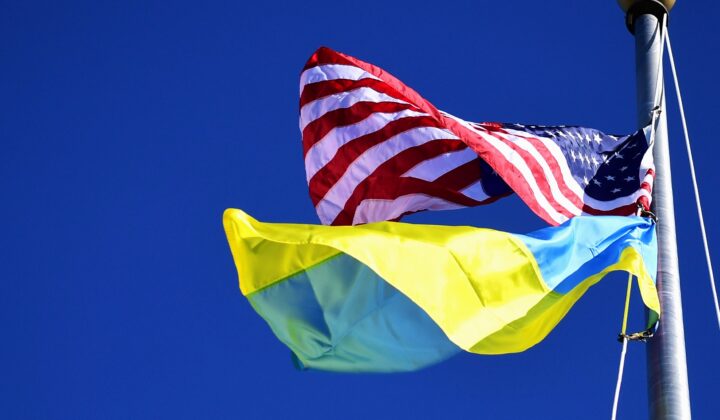This upcoming Monday, May 9th, Russia will celebrate Victory Day, the anniversary of Nazi Germany’s defeat in 1945. More than ten thousand soldiers in uniform will march through Red Square, accompanied by columns of tanks and planes flying overhead in the form of a Z, a symbol of the Russian invasion of Ukraine. Victory Day is always a fit of nationalist pride, but this year is different. After helping defeating Nazi Germany 77 years ago, the Russian government now believes itself to be in conflict with Nazi Ukraine. So far, there is no new victory to celebrate.
Russian casualties in Ukraine rise by the hour, and the government in Kyiv is more secure than at any time since the war began. Meanwhile, with Finland and Sweden on the verge of joining NATO, far from deterring the West, Russia appears to have emboldened and united it. Domestically, an economic crisis threatens everyday Russians’ prosperity, and state propagandists muse on the nightly news that sure, they might die in nuclear war, but at least they’ll take out America in the process.
Russia is in crisis, and Putin knows he can’t fail. His legacy as a Russian historical figure, his grip on power, and even his life hang on the fate of the war in Ukraine. If the military effort crumbles, there may be no more “President Putin.”
So on Monday, Vladimir Putin will stand atop Vladimir Lenin’s tomb and deliver a televised address to millions of Russians unsure about their future. Here are the most likely outcomes of that speech:
1. Declare Victory, Annex Land
The Russian army is occupying much of eastern Ukraine and the Ukrainian coastline on the Black Sea. Putin could declare victory in an initial stage of the conflict, and announce Russia’s intention to solidify its grip on the regions it controls. US officials have already stated that Russia is likely to hold rigged referendums to support Russian annexation of the eastern regions of Donetsk and Luhansk along with the southern city of Kherson by mid-May.
Annexation would, at least in Russian law and consciousness, solidify their claim to the regions in perpetuity and offer a concrete sign of success. But if Putin were to declare victory in Ukraine, he would be abandoning the mission he laid out on February 24th when he announced the special military operation: “To demilitarize and denazify Ukraine.” A declaration of victory without a renewed offensive would be an acknowledgement of defeat. As a result, Putin has a strong incentive to escalate the conflict.
2. Escalate Ambitions
Putin’s ambitions for a renewed offensive would be capturing the southern port city of Odesa and connecting Moldova’s breakaway region, Transnistria, with Russia by claiming all of Ukraine’s coastline. Both are likely goals of the Russian campaign already, but Putin could affirm Russia’s commitment to them.
More troublingly, Putin could double down on Russia’s commitment to trigger regime change in Kyiv. He suggested as much in April when he said that the Russian invasion would “continue until its full completion and the fulfillment of the tasks that have been set.” That declaration, though, is beyond the capabilities of the assembled Russian forces. The Russian military has tried and failed to take Kyiv and kill Zelensky. Short of employing chemical or nuclear weapons, the Russians would need a larger force and a greater national commitment to the war effort in order to be successful in crushing Ukraine.
3. Announce Mass Mobilization, Declare War
There are two ways Russia could dramatically increase its war effort: to announce the mass mobilization of the Russian people, and to officially declare war on Ukraine. According to Ben Wallace, Britain’s Defense Secretary, this is the most likely path that Putin will lay out on Monday.
Enacting mobilization laws would allow Putin to conscript millions to the Russian army and reorient the economy for war. A declaration of war would function similarly, with the added oppression, intensity, and symbolism associated with becoming a “nation at war.” While mobilizing millions of men appears capable of strengthening Russian forces, it may not be feasible.
The fact is that the Russian army needs more men now. But no matter the number of conscripts Putin calls up, they wouldn’t be capable of joining the fight for at least four months. Once they did join the war effort, they would be led by a military hierarchy that is ill-equipped to direct them. Russia has already lost an unprecedented 12 generals, and according to experts at RAND Corporation, “the death of multiple generals may speak to a need for top officers to be directing field activities in person, a potential sign of a lack of trust down the chain of command.”
Even if these conscripts could be effectively trained and commanded, they would join an army struggling to maintain supply lines, running low on armored vehicles, and incapable of achieving air superiority. Putin could field a larger army in Ukraine this fall, but aside from bringing about a greater death toll on both sides, it would be unlikely to fundamentally change the balance of power.
4. Threaten War with NATO
Left with few good options, Putin could turn his attention to NATO. Back in February, he said that the “Western bloc formed by the United States” is an “empire of lies” whose expansion “is a matter of life and death” for Russia. At the end of April, Russian Foreign Minister Sergei Lavrov said that “NATO, in essence, is engaged in a war with Russia through a proxy and is arming that proxy.” The Russians have their cause for war if they want it, but doing so would be a suicidal mistake.
If Russia attacks NATO, it would end in nuclear war. Despite repeated threats from the Kremlin that they will retaliate against any countries aiding Ukraine and threatening Russian security, it hasn’t happened yet. Putin is belligerent, but he is much more interested in threatening nuclear war than dying in it.
Putin’s Dilemma
None of Putin’s options offer a good outcome for Russia. Declaring a partial victory would be an admission of defeat, yet engaging in a renewed campaign to conquer Ukraine could be even more devastating for Russia. Russia is losing, and Putin is getting desperate.
When Putin takes the rostrum on Monday, he’ll have to give purpose to a war not going according to plan. He will address a nation that suddenly finds itself isolated from the world with an economy set to contract more than 10% this year and an army that has likely lost more than 25,000 men. Despite the ICBMs rolling past the Red Square alongside a formidable military display, Putin will be speaking from a position of weakness. He’s a man facing a series of bad choices, trying to turn the tide in a war he’s losing.
Autocrats are good at projecting a mirage of power, and Putin’s speech on May 9th will be threatening, boastful, and deranged. But whatever terrifying plans Putin lays out for the destruction of Ukraine, nuclear war with the West, or the mobilization of millions of young men, he can’t change the fact that the most likely outcome of the war is still a Ukrainian victory.





